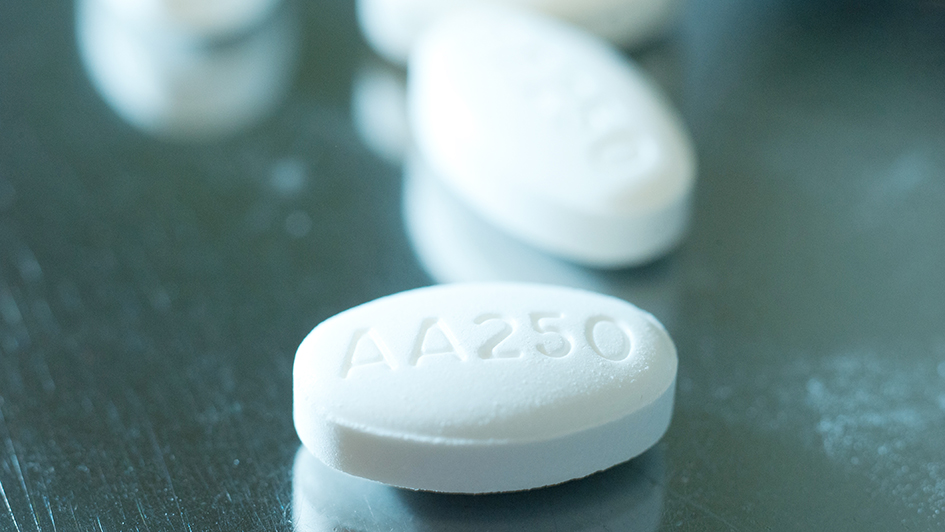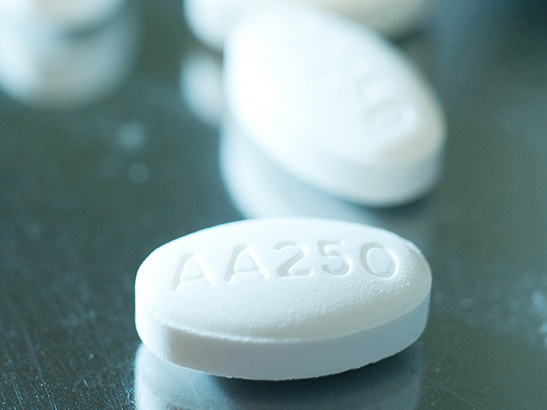
Giving the drug abiraterone alongside standard hormone therapy helps men with high-risk prostate cancer, that has not spread elsewhere in the body, live longer.
Researchers think the results from the STAMPEDE trial, presented at the 2021 European Society for Medical Oncology (ESMO) conference over the weekend, will change the current standard of care worldwide.
Scientists at The Institute of Cancer Research, London, and University College London (UCL) studied the impact of abiraterone, when used either with or without another drug, enzalutamide, when added to the standard hormone therapy for men with prostate cancer that has not spread to other parts of the body.
Abiraterone is a targeted hormone therapy that works by blocking the production of testosterone, which prostate tumours rely on to grow. Abiraterone is currently licensed to treat prostate cancer that has spread to other parts of the body or has stopped responding to standard hormone therapy.
Improved survival outcomes
A total of 988 men were randomised to receive standard of care (hormone therapy with or without radiotherapy). The researchers compared that group with 986 men who were randomised to receive abiraterone, plus standard of care. Of those in the abiraterone group, 527 men also received enzalutamide – another targeted hormone therapy normally used to treat prostate cancer that has spread to other parts of the body.
The trial found that the proportion of men whose cancer had not spread after six years in the abiraterone-based treatment group was 82 per cent, compared with 69 per cent in the standard of care group.
The proportion of men alive after six years in the abiraterone with or without enzalutamide group was 86 per cent, compared with 77 per cent in the standard of care group.
Abiraterone was discovered at The Institute of Cancer Research (ICR) and developed in clinical trials with its hospital partner The Royal Marsden NHS Foundation Trust. The drug has extended the lives of hundreds of thousands of men around the world but to date has not been approved to treat prostate cancer before it has spread.
The STAMPEDE trial is coordinated by the Medical Research Council (MRC) Clinical Trials Unit at UCL and funded by Cancer Research UK and the MRC.
"Hundreds of thousands of men with prostate cancer across the world are now able to live longer and with a better quality of life, thanks to abiraterone. Rob Lester is one of those patients, and has been on abiraterone for over 8 years."
'Our findings will change the current standard of care worldwide'
Professor Nick James, Professor of Prostate and Bladder Cancer Research at The Institute of Cancer Research, London, and Consultant Clinical Oncologist at The Royal Marsden NHS Foundation Trust, is chief investigator of the STAMPEDE trial. He said:
“STAMPEDE is a practice-changing trial that continues to make great strides in changing prostate cancer research and treatment. The depth and breadth of the trial has allowed us to examine aspects of care not studied in other more focussed trials.
“Today’s results are the first study of intensified hormone therapy in this group. The results show that all men with high-risk prostate cancer that has not spread to other parts of the body benefit substantially from abiraterone treatment for two years. Our findings will change the current standard of care worldwide. We are in active discussions with NHS England about how these findings can be implemented.”
'Should be considered for two years of abiraterone'
Study author Professor Gerhardt Attard, John Black Charitable Foundation Endowed Chair in Urological Cancer Research at University College London, UK said:
“Based on these results, all men with high-risk non-metastatic prostate cancer should be considered for two years of abiraterone. This will involve more hospital visits during this period to manage administration of the drug but by reducing subsequent relapse, may reduce the overall burden for both patients and health services.”
